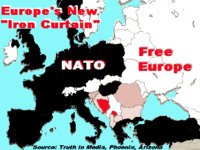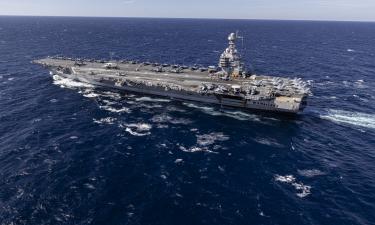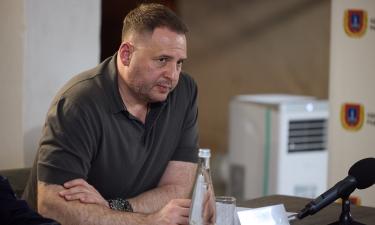NATO: Trying to Find a Strategic Concept or Looking for a Strategy?

NATO´smeeting this Thursday in the Estonian capital city, Tallinn, was a group hugamong the twenty-eight member states desperate to find a reason to exist, otherthan providing a gentleman’s club and a marketplace for the weapons lobbies.After lying to Russia about expansion, NATO continues to look for more buyersas it controls the foreign policies of its members.
NATO wasformed to provide a collective security organization against the perceivedthreat of a Soviet Union which would engulf Europe and the world (despite thefact that NATO’s arsenal has become increasingly offensive and the SovietUnion’s weapons systems were principally defensive).
While theUSSR is proud of its legacy in fighting and defeating Hitler’s horrificpolicies and in halting the expansion of Fascism (ninety percent of Wehrmachtcasualties in the Second World War were killed on the Eastern Front), what NATOdid was to cobble together a cabal of old friends and former foes, building analliance supposedly around the need to end once and for all the Franco-Germanconfrontation but really serving as a vehicle to confirm the foot of Washingtonfirmly on the throats of its new European friends.
And tocreate a common identity of “us” among those who had a few years before beenshooting at each other and dropping bombs on each others’ civilian populations,what better way than to create the image of a strong “them” (the USSR)?
And voilà,NATO is born. Now that the USSR has disappeared (after agreeing to dissolvevoluntarily as catered for under its Constitution), what does NATO stand for?
Key issues forNATO
Foremostamong the key issues facing the 28 members of the alliance is to find an answerto an increasingly difficult military situation in Afghanistan, now that nobodyis speaking about Iraq, where NATO’s strategy is to pay off the “insurgents” asindeed it is doing with the Taliban.
Other keyissues will be another disgusting decision regarding expansion (Bosnia, whoseclaim to fame is that Osama bin Laden is a Bosnian passport-holder, is thefirst in line after NATO promised Russia time and again that it would notexpand) and the continued presence of US nuclear warheads in Europe – around200 of them (what was that about missiles in Cuba?).
NATO willprobably speak about the Islamic Republic of Iran’s peaceful nuclear programbut will fail to mention Israel’s warheads in the Negev desert, of course andthen it will have to find a strategic concept (a reason to exist) or indeed, acommon strategy.
If we arehonest and listen to the way political leaders speak in the corridors but notnecessarily at NATO meetings, who for instance thinks that the Iraq invasionwas a good idea? Who agrees with the Kosovo campaign and the failed attempt toset up an Albanian mafia state in Pristina? Who is happy about Washington defacto ruling the foreign policy of its member states?
Key issuesfor Russia
The Tallinnmeeting follows the Russia-NATO Council meeting in Brussels, at which theRussian Security Council Assistant Secretary Yuri Baluyevsky presented thesecond phase of the Russian military doctrine to the Council viavideoconference.
For Russia,the fundamental question regarding NATO is not the existence of the alliancebut rather its application of military force on a global scale againstinternational law, attempts to expand eastwards onto Russia’s borders despitethe fact that guarantees were given that this would not take place and attemptsto constitute a major external military threat to Russia.
Memberstates of NATO have territorial claims on Russian territory, NATO’s chief ofstaff, Washington, follows through with its intention to set up a globalballistic missile defence system, on Russia’s doorstep. Washington is vying foran increased militarization of space.
Conclusion
Russia’sforeign policy has always been interactive, pragmatic and reactive, whilealways pressing for respect for international law and the multilateral approachto resolution of issues with the UNO serving and acting as the proper forum forcrisis management and debate.
As regardsNATO, if after nine years twenty-eight nations are incapable of defeating acollection of poorly-armed and largely untrained fanatics, then NATO does notcount for anything other than a lobby to bully and cajole countries intofollowing Washington’s foreign policy guidelines (or else). As a militaryforce, it is a joke. High on spin and self-righteousness after its sustainedterrorist attack against Yugoslavia, taking the wrong side by supporting KLAAlbanian terrorists and strafing Serbian security forces which were fightingbin Laden and international terrorism, NATO oversaw the attempted and failedinstitution of an Albanian mafia state in Kosovo.
It is clearwhere right and reason lie. After all, if we ask a simple question, what isNATO, and why?
TimothyBANCROFT-HINCHEY
PRAVDA.Ru
Subscribe to Pravda.Ru Telegram channel, Facebook, RSS!




